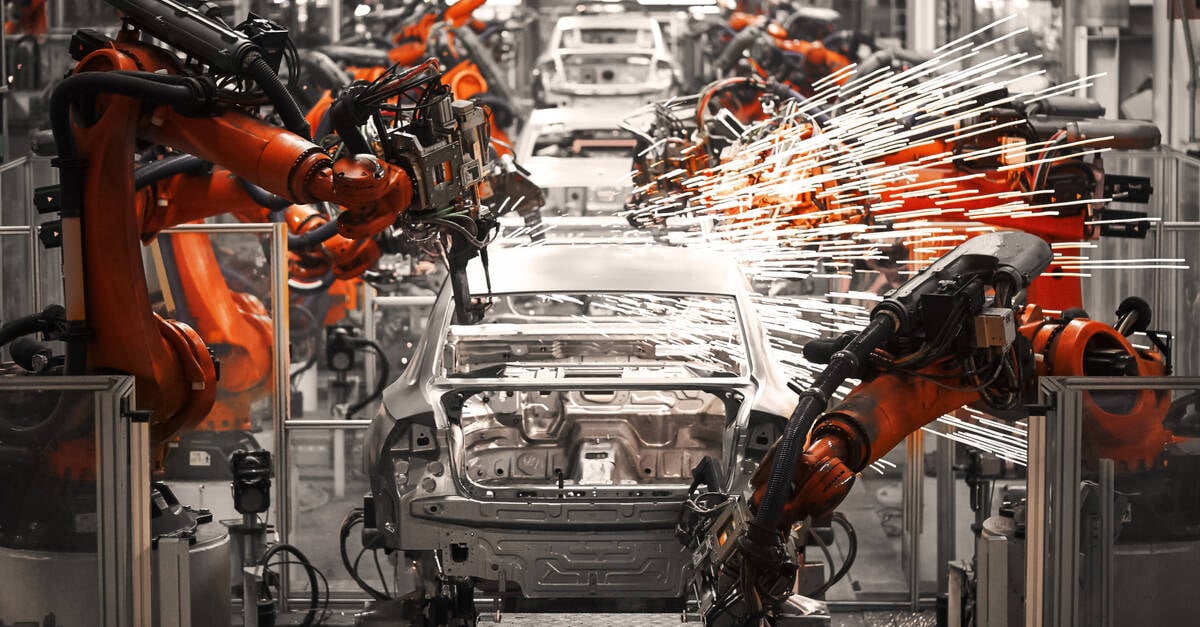Whenever Automakers Get Their Hands On Chip Supplies, The More Expensive Vehicles Are First In Line – NXP

Car makers are shutting down factories because of semiconductor shortages – and whatever chips they can get their hands are going into more expensive vehicles.
"We have seen multiple OEMs prioritize to production of premium vehicles, which require upwards of twice the semiconductor content from NXP and others," said Kurt Sievers, CEO of NXP, during an earnings call with financial analysts this week.
The trend in the car market is very similar to that of the PC market, with laptop and desktop makers squeezing out more profits by putting the limited supply of chips in expensive machines. Though that's a no-brainer for the bean counters, it's positively bad news for those hoping to pick up modestly priced equipment – and vehicles.
Automakers are either focusing on selling high-end cars, or defeaturing some premium features in vehicles for lack of chips, said Jim McGregor, principal analyst at Tirias Research.
He gave the example of Porsche, which is selling cars with dummy chips that it could ultimately replace with real chips, and GM, which has removed features like auto start-stop due to chip shortages.
"It would suck if you can't sell cars. You need to keep the doors open. They are getting squeezed," McGregor said.
Electric and hybrid vehicles will account for 20 per cent of the cars manufactured this year, compared to just eight per cent last year, which will also strain the auto chip market, Sievers said.
"This is very impactful since the average semiconductor content in an [electric vehicle] is about $900, which is roughly 2 times that of an equivalent [internal combustion engine] vehicle."
The lead time for car makers to receive 75 per cent of the NXP's automotive chips has increased to about a year, Sievers added.
- Chip manufacturers are going back to the future for automotive silicon
- Toyota needs more than its Cheer Squad to deal with chip shortages, as five more home factories forced into idleness
- Seeing as everyone loves cloud subscriptions, get ready for car-as-a-service future
- Intel: 'Another one to two years before the industry is able to completely catch up with demand'
"Our Tier 1 partners explicitly demand that more supply and inventory will be needed in the extended supply chain, which we believe cannot be broadly achieved before 2023," he explained.
Sievers sees a positive outlook for the company in the automotive space. But waiting too long to supply chips isn't good either, McGregor said.
"It's a dangerous game to say you should plan farther out. We have seen that in other markets like cell phones," McGregor said, adding that it's all "fine and dandy" with the supply shortages working in NXP's favor, but the demand could go away overnight with an event like the economy tanking.
NXP reported revenue for the third quarter of $2.9bn, growing by 26.2 per cent compared to the same quarter last year. About half of the overall quarterly revenue was from the automotive unit, at $1.4bn, growing 51 per cent year-over-year. On a GAAP basis, the company reported a net profit of $1.59bn, growing by 45 per cent. ®
From Chip War To Cloud War: The Next Frontier In Global Tech Competition
The global chip war, characterized by intense competition among nations and corporations for supremacy in semiconductor ... Read more
The High Stakes Of Tech Regulation: Security Risks And Market Dynamics
The influence of tech giants in the global economy continues to grow, raising crucial questions about how to balance sec... Read more
The Tyranny Of Instagram Interiors: Why It's Time To Break Free From Algorithm-Driven Aesthetics
Instagram has become a dominant force in shaping interior design trends, offering a seemingly endless stream of inspirat... Read more
The Data Crunch In AI: Strategies For Sustainability
Exploring solutions to the imminent exhaustion of internet data for AI training.As the artificial intelligence (AI) indu... Read more
Google Abandons Four-Year Effort To Remove Cookies From Chrome Browser
After four years of dedicated effort, Google has decided to abandon its plan to remove third-party cookies from its Chro... Read more
LinkedIn Embraces AI And Gamification To Drive User Engagement And Revenue
In an effort to tackle slowing revenue growth and enhance user engagement, LinkedIn is turning to artificial intelligenc... Read more

